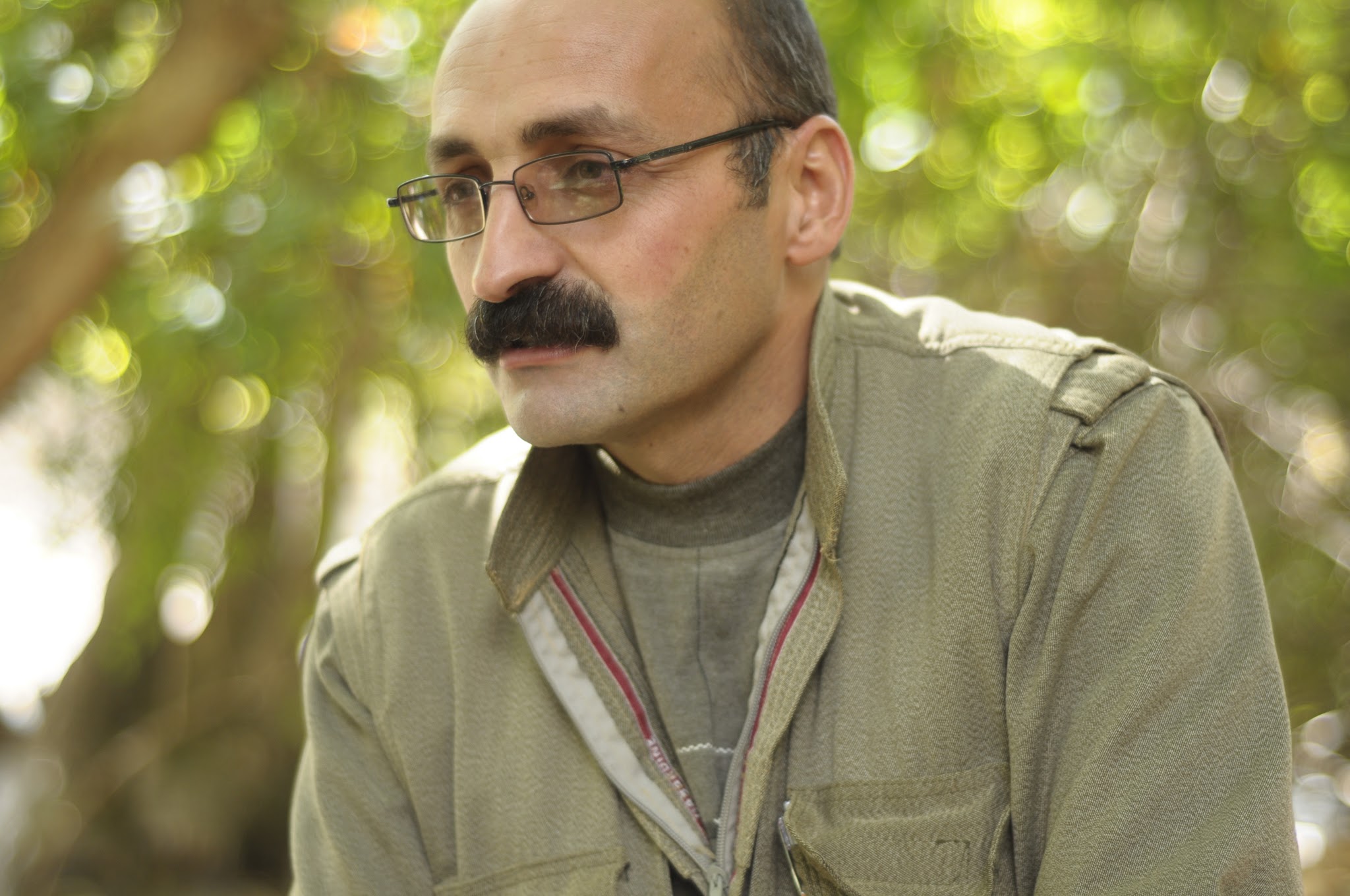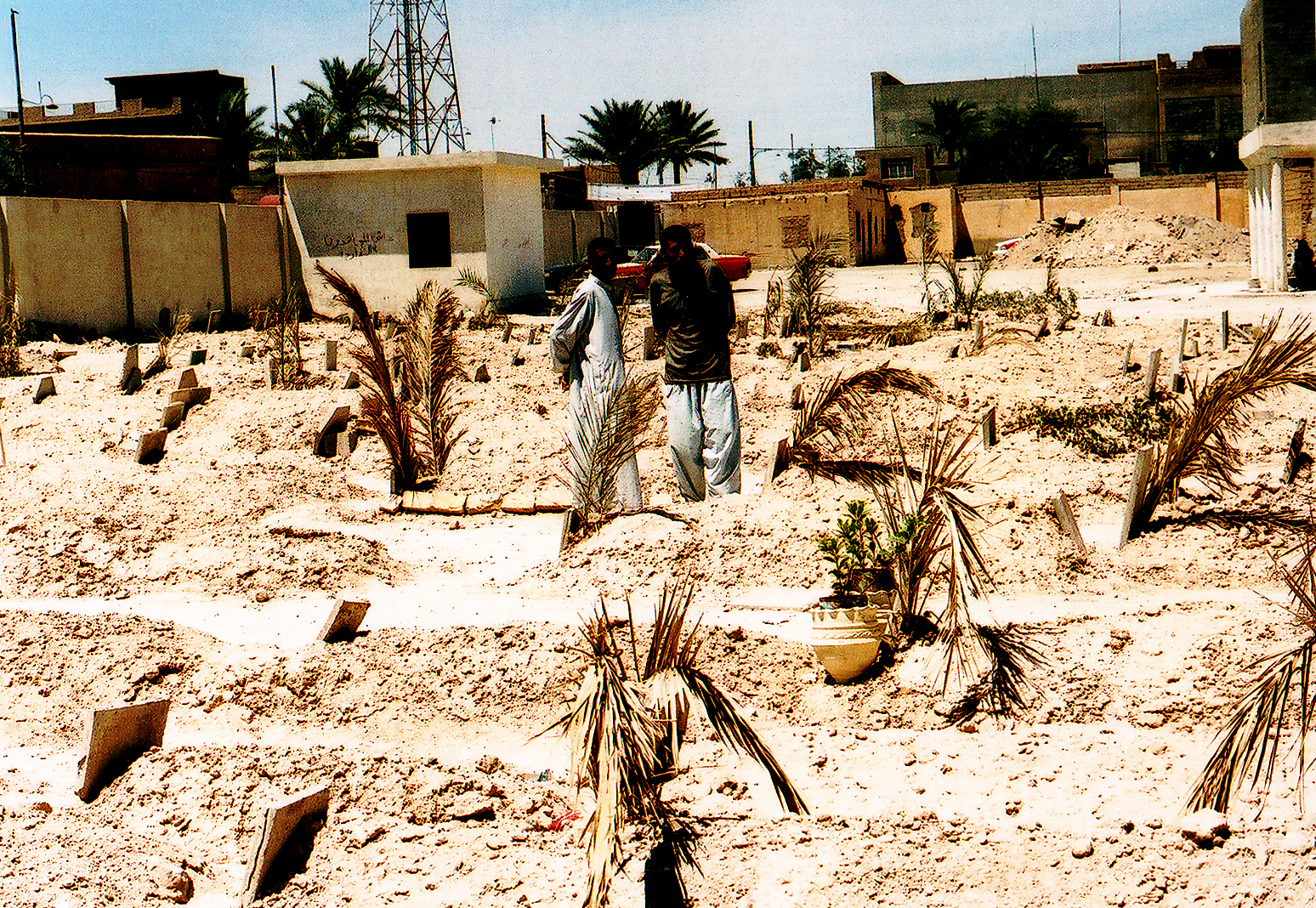
For the first time since they took up arms, guerrillas from the Party for Free Life in Kurdistan, also known as PJAK, have reached a mutual ceasefire with the Iranian government.
PJAK claims a membership of "thousands" of militants inside northern Iraq who have waged cross-border attacks on Iranian militiamen and security forces. Earlier this year, the Iranian government stepped up its military campaign against the group, claiming to drive them out of Iran entirely.
PJAK members say they are fighting for democracy in Iran. The US government has declared PJAK a terrorist organization because of its close ties to the PKK, the Turkish Kurdish rebel group that has waged a war against the Turkish government that has killed thousands since the 1980s. Both the PKK and the PJAK operate from the mountainous area near Qandil.
"We are against war and we are against fighting—that's why we accepted the idea of the cease-fire," said Sherzand Kamangar, a spokesman for PJAK.
The ceasefire was negotiated by members of Iraq's Kurdish Regional Government (KRG), including Nurchivan Barzani, the son of Massoud Barzani, the president of the Kurdish region. The KRG controls much of the area around the border and is increasingly involved in negotiations with Iraq's neighbors over the country's northern borders, raising the question of whether it is superseding the Iraqi federal government in managing such areas.
Kamangar said that for PJAK to put down its arms permanently "Iran must take steps to end its military dictatorship and the execution of Kurds."
A month after Kamangar spoke, Barzani appeared in Iran with the Iranian foreign minister to announce the end of PJAK's resistance.
Members of the KRG who were familiar with the negotiations could not be reached for comment.
The Iranian government says that fewer than 30 percent of PJAK's members are actually Iranian Kurds, a charge that PJAK denies. While there are almost certainly a substantial number of Kurds from Iraq and Syria fighting with PJAK, the group does operate independently of the PKK.
"We are fighting the Iranian government, not the Turkish government," Kamangar said, adding that PJAK does not seek Kurdish autonomy, a demand of the PKK.
PJAK began organizing inside in Iran in the late 1990s, and started launching attacks from the rugged Qandil Mountains in 2004. It is nearly impossible to verify their claims about the damage they have inflicted, but even the Iranian government admits PJAK's campaign has claimed hundreds of lives. PJAK says that the Iranian government has killed nearly 200 of their fighters; the Iranian government claims the number is much higher. In any case, the ceasefire, which began on Sept. 5, has held so far.
As the Iranian government has shelled the areas from which PJAK operates from, as many as one thousand families from nine villages have been forced from their homes and into refugee camps further away from the border. Turkish shelling and airstrikes have also claimed lives and property in the villages.
Human Rights Watch has accused Iran of intentionally shelling civilian areas as it stepped up its campaign against PJAK in the last six months, and this appears true in some cases. The nearly 200 families in one camp about six miles from the border all hailed from a village called Sunay, which is indeed miles from the nearest rebel position.
The village's former residents have continued to use the school here, even though it has been shelled.
"The population of these areas lost many things physically and spiritually because of the bombardment," said Hassan Hama Hassan, a teacher at the school. "They have left their property behind, and their fields have been burned and their animals killed. Some schools have stopped altogether because there's no guarantee for the students' and the teachers' lives."
After enduring years of shelling, villagers said they are not convinced the cease-fire will last.
"We have been here for three months in this camp. The winter will begin soon and it will start to rain," said Nazanin Hussein, a resident of Sunay, as her children played nearby. "Our children are in a terrible situation, having to walk to their school. Until now, the Kurdish government hasn't done anything for us. They come to visit us and they promise to help, but they do nothing. I'm asking the officials, could their children live for five minutes here? We don't need money or food, we just want to go to our village."




